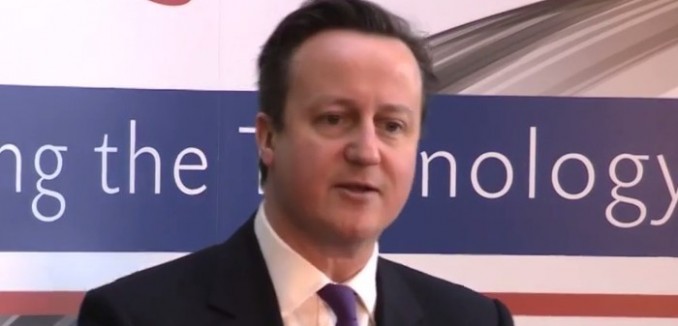British Prime Minister David Cameron’s visit to Israel last week wasn’t just a matter of diplomacy and show of political support for the Jewish state. It was also the occasion for the two countries to announce a major research initiative.
Israel-based Teva Pharmaceuticals, the world’s largest generic drug maker, and the United Kingdom announced a joint initiative to improve drug development and study dementia during Cameron’s visit. Of the $21 million to be invested in the research, $20 million will come from Teva. The Jerusalem Post reports:
The collaboration, which will be with the UK’s National Health Service’s National Institute for Health Research (NIHR) Office for Clinical Research Infrastructure (NOCRI), will also aim to reduce the complexity of running a drug development program by creating a single point of entry into the UK health system.
According to the Post, the impetus for the dementia research is the staggering global annual cost of caring for patients, estimated to be $604 billion. Additionally, the World Health Organization estimates that the number of patients suffering from dementia may triple in the next 40 years.
The program reflects an increasing British commitment to dementia research, which has included raising the government’s allocation from $43 million in 2010 to $109 million in 2015.
Teva already has a major presence in United Kingdom, as Cameron noted that one in six drugs used by the National Health Service is manufactured by the pharmaceutical giant. According to the prime minister, “Collaborations in science, research, healthcare and pharmaceuticals were among the strongest building blocks of the British-Israeli relationship.”
Cameron’s office released a number of other scientific collaborations between two countries. In addition to the Teva investment, the Noy Infrastructure and Energy Investment Fund has committed more than $80 million to invest in Britain’s renewable energy sector, and AposTherapy, a firm that treats knee osteoarthritis, will be investing some $16 million and opening offices in Britain.
Israel, already known as “startup nation” for its news-making information technology sector, is gaining a reputation for its growing biotech industry. Stanford University formed an incubator with two Israeli universities that teaches students how to develop and market new bio-technologies. This year’s winner of the Israel Prize for medicine, Marta Weinstock-Rosin, a Holocaust survivor and head of Hebrew University’s School of Pharmacy, is being honored for creating Exelon, a leading Alzheimer’s drug.
[Photo: IsraeliPM / YouTube ]




